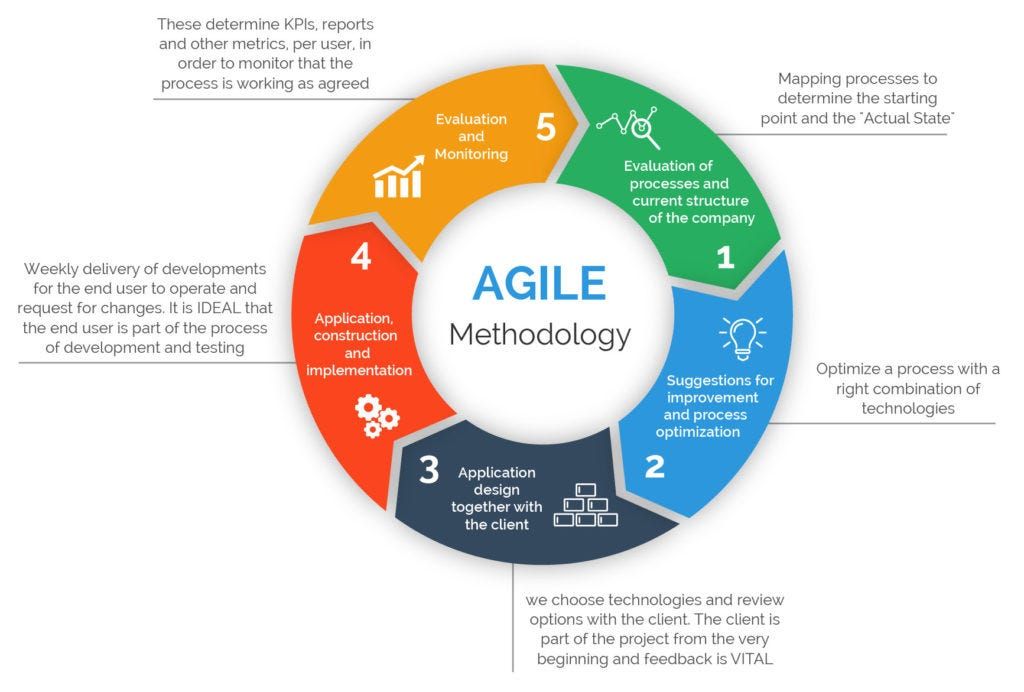The Role of Agile Methodology in Project Management
In today’s fast-paced and ever-changing tech industry, project management teams face constant challenges in delivering high-quality products on time and within budget. Traditional project management methodologies have often struggled to keep up with the demands of modern software development. This is where Agile methodology comes in.
What is Agile Methodology?
Agile methodology is an iterative approach to project management that focuses on delivering small, incremental value to customers throughout the development process. It emphasizes collaboration, flexibility, and continuous improvement. Agile methodology is based on the principles outlined in the Agile Manifesto, which values individuals and interactions over processes and tools, working software over comprehensive documentation, customer collaboration over contract negotiation, and responding to change over following a plan.
The Benefits of Agile Methodology in Project Management
Agile methodology offers several key benefits that make it ideal for project management in the tech industry:
Rapid Response to Change
One of the core principles of Agile methodology is the ability to quickly adapt to changing requirements and priorities. This flexibility allows teams to respond to feedback and make adjustments throughout the development process, ensuring that the final product meets the needs of the customer.
Improved Collaboration
Agile methodology encourages close collaboration between team members, stakeholders, and customers. By breaking down silos and fostering open communication, Agile teams can work together more effectively to solve problems and deliver results.
Increased Transparency
Agile methodology promotes transparency by making progress visible to all team members. Daily stand-up meetings, sprint reviews, and retrospectives provide opportunities for team members to share updates, discuss challenges, and celebrate successes.
Enhanced Quality
By delivering small, incremental value to customers throughout the development process, Agile teams can identify and address issues early on. This leads to higher-quality products and greater customer satisfaction.
Implementing Agile Methodology in Project Management
While Agile methodology offers many benefits, implementing it successfully in project management requires careful planning and execution. Here are some key steps to consider:
Training and Education
Provide training and education to team members on Agile principles and practices. This will ensure that everyone is on the same page and understands the role they play in the Agile process.
Define Project Scope
Clearly define the project scope and prioritize requirements. This will help the team to focus on delivering the most valuable features to customers first.
Break Down Work into Sprints
Break down the work into smaller, manageable tasks that can be completed within a fixed time frame known as sprints. This will help the team to maintain focus and track progress more effectively.
Continuous Improvement
Encourage a culture of continuous improvement by conducting regular retrospectives to reflect on what went well and what could be improved. This will help the team to learn from their experiences and make adjustments for future projects.
Conclusion
Agile methodology plays a vital role in project management in the tech industry by promoting collaboration, flexibility, and continuous improvement. By embracing Agile principles and practices, project management teams can deliver high-quality products on time and within budget, while also fostering a culture of transparency, innovation, and customer satisfaction.
Implementing Agile methodology requires a shift in mindset and a commitment to ongoing learning and improvement. By following best practices and staying true to the core principles of Agile, project management teams can navigate the challenges of the tech industry with confidence and deliver successful outcomes for their customers.


